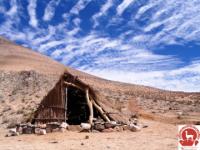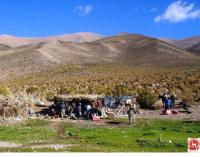 | |
On February 12 we were notified that the request for our Diaguita Agricultural Community Los Huascoaltinos was deemed admissible by the Inter-American Commission on Human Rights (IACHR). Thus, this international body recognizes that the Chilean state committed alleged violations of rights enshrined in the American Convention on Human Rights when Chile approved Barrick Gold�s Pascua Lama mining project.

The case was submitted to the IACHR in June 2007 by Nancy Ya�ez, the attorney representing the Huascoaltinos. However, the analysis of the substantive arguments of the case was delayed because of the repeated extensions sought by the State of Chile. Chile also requested that the case not be admitted for prosecution, arguing formal filing failures. However, after three years of study, the Commission did not agree with the State of Chile�s claims. Instead, the IACHR declared our allegation, which states that there was a Denial of Justice when the State of Chile granted an environmental qualification to the development of Pascua Lama Mining Project in our ancient territories, admissible.
Main arguments of case:
� The lands currently used by Barrick are known as Estancia Cha�arcillo and have an extension of 49,000 hectares. These lands were part of our domain title in 1903, however, after a complex series of fraudulent transfers and acquisitions that began in 1913 and culminated in 1998, the Nevada Mining Company, a subsidiary of Barrick Gold in Chile, purchased and registered these lands in March 1999.
� The State of Chile, with the knowledge of these facts, approved the development of Pascua Lama Mining Project without considering any of the comments submitted by our community in the Environmental Assessment Process.
� The State of Chile violated our right to free and informed consent, enshrined in the American Convention on Human Rights. For example, when the project was originally approved in 2001 we were not called to any instance of participation.
� The project does not consider in any of its studies the sociocultural impact on the living systems and traditional customs of our 250 community members and their families, who have made free use of the mountains since time immemorial to raise goats, sheep, horses, mules and cattle.
� The Pascua Lama project, as occupying part of our ancestral territory, takes away from us the possibility of protecting our natural and cultural heritage. This heritage is part of an integrated system that allows replication and maintenance of our culture over time.
|
After the notification of admissibility, we have a period of three months to submit additional background. This will be reviewed by the Commission, who shall give a report of binding recommendations binding to Chile, to be met within pre-established deadlines. If the State of Chile does not comply with these recommendations, the case will be reviewed by the Inter-American Court on Human Rights.
This space opened in the field of international law, fills us with hope and invites us to continue to defend our land at a crucial time, when the dangers of Pascua Lama and Barrick Gold's plans for our land are imminent. On 16 November, Chilean courts failed us by allowing Barrick to prospect in 215.77 hectares of our land, located in Quebrada de Pachuy. With these prospects, the mining company is looking for new veins to expand its Pascua Lama project.
These projects threaten our territorial and cultural integrity, as well as the plans we have for our own development. Since 2006, we have been working to transform our land into a Natural and Cultural Reserve. To this end, we have created a development model that will allow us to continue to exist in the harmonious relationship with nature we have always lived in and, at the same time, protect the precious water guarded in our territory that gives life to all the Huasco Valley. However, all these aspirations are frustrated when, despite the Diaguitas Huascoaltinos decision to deny Barrick entry to our lands, the State of Chile forces us again to let them take our land as they continue allowing them to mine in our Reserve.
Sergio Campusano V., President of our Diaguita Agricultural Community Los Huascoaltinos explains: "Our land is the legacy of our elders and we want to give the possibility to enjoy it to our children and grandchildren. It is unfair for others to come decide what they want to do with our land, to do business and exploit it, threatening the water and nature that has existed in Huasco Alto forever. We do not want to exploit our land, we want to take care of it, and the State of Chile has not respected our basic right to decide what we want for our own development."
As this scenario threatens our way of life and future projections, the admission of the case in the Inter-American Commission opens a window and gives new hope for the defense of the Huasco Valley. "Our Community was intentionally ignored by the State of Chile during the approval process for the Pascua-Lama project because we oppose mega-mining development within our lands. This has to be recognized and amended. We sincerely hope we can find the justice that was denied to us in our own country�. Says Sergio Campusano V.
A concrete proof that Pascua Lama is causing irreversible damage to our environment is that on 20 January, the Atacama Environmental Authorities began a process of punishment to Barrick Gold for illegally damaging the glaciers and rivers and for breaching health standards required by Environmental Qualification Resolution. |